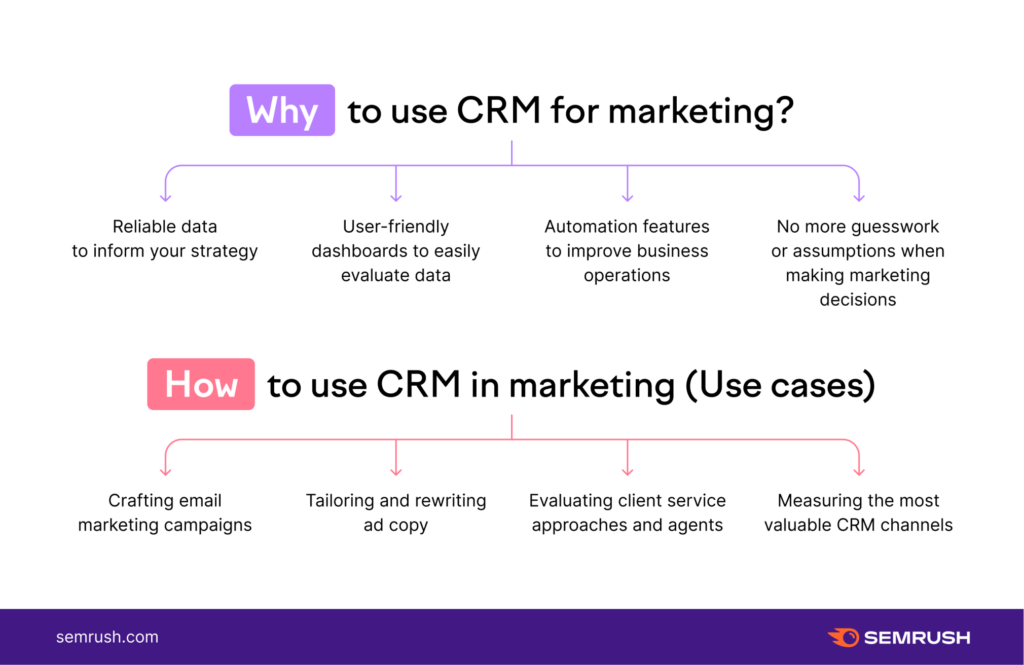
The Role of Social Media in CRM
In the digital age, social media has become a powerful tool for businesses to connect with customers, build relationships, and drive engagement. Integrating social media with Customer Relationship Management (CRM) systems has revolutionized how businesses interact with their customers. This article explores the crucial role of social media in CRM and how it can enhance customer relationships, improve marketing strategies, and boost overall business performance.
Enhancing Customer Relationships
- Real-Time Engagement
- Instant Communication: Social media platforms enable businesses to interact with customers in real-time. Whether responding to inquiries, addressing complaints, or engaging in conversations, instant communication helps build trust and foster stronger relationships.
- Personalized Interactions: Social media provides valuable insights into customer preferences, interests, and behaviors. Businesses can use this information to personalize their interactions, offering tailored content and recommendations that resonate with individual customers.
- Building Community
- Creating Brand Advocates: Social media allows businesses to cultivate a community of loyal customers who can become brand advocates. Engaging with customers through social media helps create a sense of belonging and encourages them to share positive experiences with their networks.
- Customer Feedback and Insights: Social media platforms are rich sources of customer feedback. By monitoring comments, reviews, and discussions, businesses can gain valuable insights into customer satisfaction, preferences, and pain points, allowing them to make informed decisions and improvements.
Improving Marketing Strategies
- Targeted Marketing
- Audience Segmentation: Social media platforms offer advanced targeting options that enable businesses to segment their audience based on demographics, interests, behaviors, and more. This segmentation allows for more precise and effective marketing campaigns.
- Retargeting Campaigns: Integrating social media with CRM systems enables businesses to retarget customers who have previously interacted with their brand. By leveraging CRM data, businesses can create personalized retargeting campaigns that increase conversion rates and customer retention.
- Content Distribution
- Amplifying Reach: Social media is an excellent channel for distributing content to a wider audience. Businesses can share blog posts, videos, infographics, and other content to engage with their followers and attract new prospects.
- Engaging Visuals: Visual content tends to perform well on social media. By sharing engaging visuals, businesses can capture the attention of their audience, increase engagement, and drive traffic to their website or landing pages.
Boosting Sales and Revenue
- Social Selling
- Identifying Leads: Social media platforms can be valuable sources of leads. By monitoring conversations and engagement, sales teams can identify potential leads and reach out to them with relevant offers and solutions.
- Building Relationships: Social selling involves building relationships with prospects through social media interactions. By providing value, answering questions, and sharing insights, sales teams can establish credibility and trust, making it easier to convert leads into customers.
- Customer Retention
- Ongoing Engagement: Social media allows businesses to stay connected with their customers even after a sale is made. By continuously engaging with customers through valuable content and interactions, businesses can enhance customer loyalty and retention.
- Proactive Support: Social media provides a platform for proactive customer support. By addressing customer issues promptly and offering solutions through social channels, businesses can improve customer satisfaction and reduce churn rates.
Integrating Social Media with CRM Systems
- Data Integration
- Comprehensive View of Customers: Integrating social media with CRM systems provides a comprehensive view of customer interactions across multiple channels. This integration enables businesses to track and analyze customer behavior, preferences, and engagement in a unified platform.
- Enriched Customer Profiles: Social media integration enriches customer profiles with valuable data from social interactions. This enriched data helps businesses create more personalized and targeted marketing campaigns.
- Automated Workflows
- Streamlined Processes: Automating workflows between social media and CRM systems streamlines processes such as lead capture, follow-ups, and customer service. Automation ensures that no leads or customer inquiries fall through the cracks, improving efficiency and response times.
- Consistent Communication: Automation helps maintain consistent communication with customers across social media and other channels. By setting up automated responses and follow-up sequences, businesses can ensure timely and relevant interactions.
Measuring Success and ROI
- Social Media Analytics
- Performance Metrics: Social media analytics tools provide insights into key performance metrics such as engagement rates, reach, impressions, and conversions. By analyzing these metrics, businesses can evaluate the effectiveness of their social media strategies and make data-driven adjustments.
- Customer Sentiment: Monitoring customer sentiment on social media helps businesses understand how customers perceive their brand. Positive sentiment can be leveraged to enhance marketing efforts, while negative sentiment can be addressed to improve customer satisfaction.
- ROI Tracking
- Attribution Models: CRM systems can help track the return on investment (ROI) of social media campaigns by attributing conversions and sales to specific social media interactions. This tracking allows businesses to measure the impact of their social media efforts on revenue and profitability.
- Campaign Performance: By integrating CRM with social media analytics, businesses can track the performance of individual campaigns and identify which strategies deliver the best results. This insight helps optimize future campaigns for better ROI.
Conclusion
Social media plays a vital role in modern CRM strategies, offering businesses powerful tools to engage with customers, improve marketing efforts, and drive sales. By integrating social media with CRM systems, businesses can enhance customer relationships, streamline processes, and measure success more effectively. Embracing the role of social media in CRM is essential for staying competitive in today’s digital landscape and achieving long-term business success.